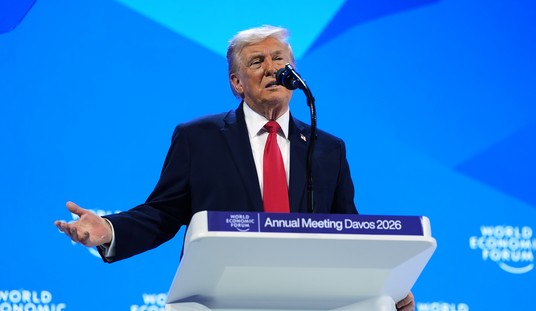Drones killed al-Qaeda’s number 2 in Pakistan and Leon Panetta was not apologizing for it. “Speaking in India, Panetta unapologetically dismissed suggestions that the strikes could violate Pakistan’s sovereignty.”
This is about our sovereignty as well,” he said when answering questions from the audience after a speech at an Indian think tank. And he was blunt about the difficulties in the US relationship with Pakistan, as insurgents continue to find safe haven there, despite repeated protests from American leaders.
Delivered as it was, in India, Panetta’s remarks appeared to indicate a pivot to India, away from Pakistan. One of the reasons for Panetta’s trip to India was to exhort Islamabad’s archrival to get involved in Afghanistan.
Briefing reporters at the Pentagon, Capt. John Kirby, a top Defense Department spokesman, said that Panetta was expressing his “fervent hope” that the Indians will “continue to stay engaged in the region and in particular in helping Afghanistan as it moves forward.” Afghanistan wasn’t the focus of Panetta’s visit, Kirby added: “He’s in India to thank them for their efforts at regional leadership and to look for ways to deepen our defense cooperation with India and our relationship with India.”
That’s something that already worries Pakistan. It sponsored the Taliban in the 1990s to ensure it had a pliable ally on its western border so it could focus on confronting India, its wealthier, larger adversary. India’s presence in post-Taliban Afghanistan is unnerving to Islamabad. In 2008 and 2009, insurgents, possibly with ties to Pakistan’s intelligence service, bombed the Indian embassy in Kabul.
With the US withdrawal from Afghanistan in the cards, it was inevitable that Washington would hand over the role of policing the area to a proxy. That proxy can only be India.
Washington is even preparing to leave Afghanistan via Central Asia, without requiring any transit through the territory of its doughty ally. This may have been forced on Washington by Pakistan, which has “shut down the southern supply routes six months … Pakistani leaders last month signaled that negotiations on the supply routes were progressing, just in time to secure an invitation to the weekend NATO summit in Chicago.”
NATO has concluded agreements with Central Asian nations allowing it to evacuate vehicles and other military equipment from Afghanistan and completely bypass Pakistan, which once provided the main supply route for coalition forces.
Secretary-General Anders Fogh Rasmussen said Monday that Uzbekistan, Kyrgyzstan and Kazakhstan had agreed to allow the reverse transport of alliance equipment. Since NATO already has an agreement with Russia, the deal will allow it to ship back to Europe tens of thousands of vehicles, containers and other items through the overland route when the evacuation picks up pace later this year.
This will have the effect of clearing the decks. The WSJ says “The U.S. encouragement of India may be designed to tweak Pakistan, or pressure Islamabad to take a more conciliatory position on Afghanistan. Pakistan has fiercely resisted attempts by India to forge closer relations with Afghanistan. An Afghanistan with close ties to India, many in Islamabad believe, would threaten Pakistan and deprive Pakistan of the ‘strategic depth’ it wants in central Asia.” In one sense the US pivot to India represents an acknowledgement that Pakistan has taken its American friends from a long, expensive and treacherous ride, wearing it out in Afghanistan and hoping to pick up the pieces. In the meantime, Pakistan tested a new delivery vehicle for its nukes: a terrain following cruise missile.
ISLAMABAD — Pakistan on Tuesday tested a fifth nuclear-capable missile since India launched a new long-range weapon capable of hitting China just over six weeks ago. The Hatf VII cruise missile has a range of 700 kilometres (440 miles), can carry conventional warheads and has stealth capabilities, the military said.
It described the “low flying, terrain hugging missile with high maneuverability” as having “pinpoint accuracy” and “radar avoidance features”.
It was an ignominious end to the “war of necessity” proclaimed by President Obama, but at the same time it represents a sensible realignment of strategy. Whether by design or driven by necessity the Administration is now in the correct strategic stance. The enemy in the theater is now clearly identified as being Pakistan.
A US withdrawal and alliance with India will lay the groundwork for future diplomacy and action. At long last things are orienting in the right way. If the US can free itself of hydrocarbon dependence on the Middle East, the coming global economic crisis will create immense opportunities — and dangers — in the fight against Islamic extremism.
The capitals and sources of strength of the new extremism have been laid bare. But the upheavals in the Arab world threaten to impoverish the entire area. The coming years will be ones of extraordinary peril and opportunity, as underscored by the Pakistani nuclear test. It can either end well for the world, or end in a disaster.
Belmont Commenters
How to Publish on Amazon’s Kindle for $2.99
The Three Conjectures at Amazon Kindle for $1.99
Storming the Castle at Amazon Kindle for $3.99
No Way In at Amazon Kindle $8.95, print $9.99










Join the conversation as a VIP Member